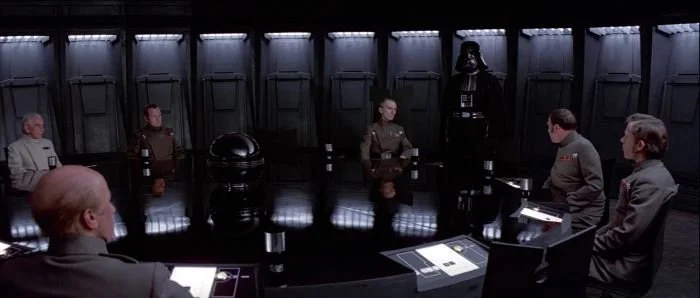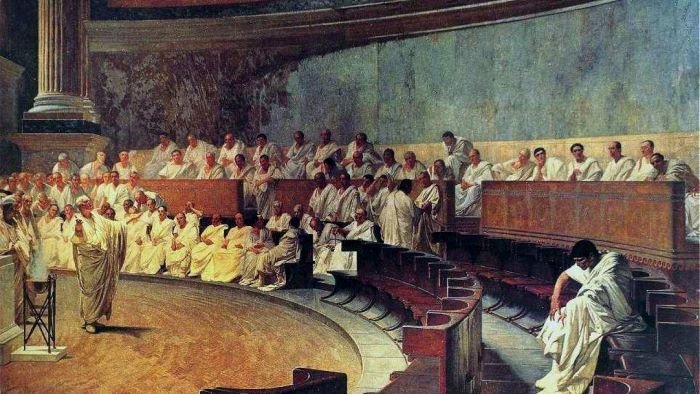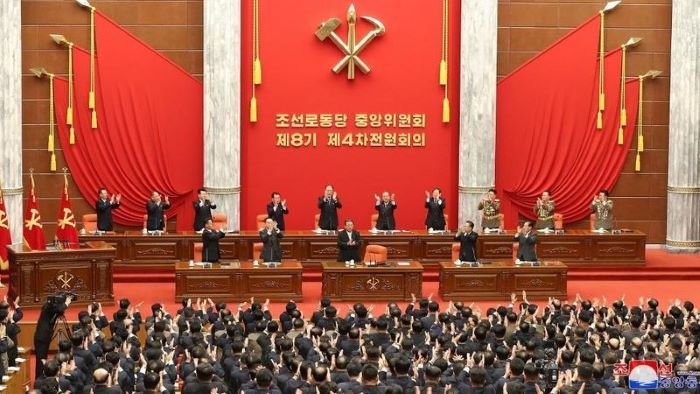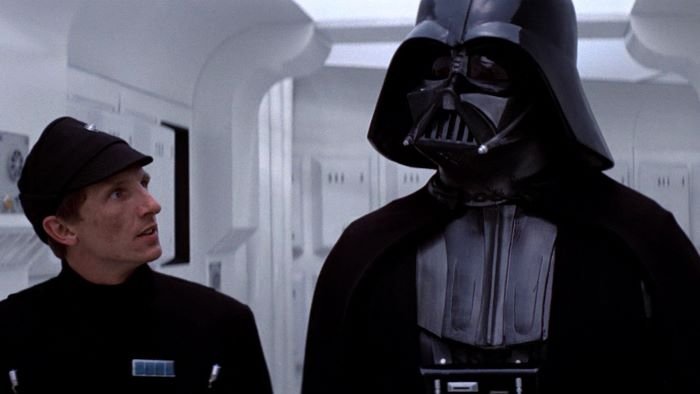What Is The Point Of The Senate In The Empire?
Image Source: YouTube
Every Star Wars fan knows these lines: “I love democracy. I love the Republic. The power you give me I will lay down when this crisis has abated.”
And then, 19 years after the events of Revenge of the Sith, we get these lines: “The Imperial Senate will no longer be of any concern to us. I have just received word that the Emperor has dissolved the council permanently.”
Pour one out for irony, I guess. From the end of the prequel trilogy to A New Hope, the Imperial Senate continues to exist for 19 years despite Palpatine declaring himself Emperor over what is now the Galactic Empire.
What Purpose Does A Legislature Serve In A Dictatorship?
Image Source: Wookieepedia
There are plenty of historical precedents in the real world that likely served as inspiration. The classic example would be Rome. After it famously became a republic after killing its last “tyrant,” Julius Caesar, Rome was ruled by a single or a couple of individuals. Despite a few centuries of rule by a dictator, the Roman Senate endured. Some emperors did dissolve the Senate, or simply ignored them, but it was there all the while.
Image Source: World History Encyclopedia
RELATED:
Then, there was Napoleon. After years of chaotic revolution and a confusing rollercoaster of changes in the government, France returned to rule under a single person, Napoleon Bonaparte. Not only did a legislature of a sort exist during Napoleon’s rule, but he also made use of plebiscites (a heavily biased and manipulative ballot measure feigning large public support) to give the impression of democracy while consolidating more power for himself.
Napoleon was not the only dictator to use that method. Hitler did the same during his ascent to power. These were not the only examples of dictatorships with active or “functioning” legislatures either. Imperial England, communist Cuba, and isolationist North Korea are all under the direction of a dictator, yet also with elected legislatures. North Korea is technically the Democratic People’s Republic of Korea (DPRK).
Image Source: China Daily
So why have a senate at all? One of the most important reasons was image. In Rome, as in the other examples, these dictatorships followed a period of some form of democracy. In the age of revolution and the spread of democratic ideology, monarchs and would-be dictators found themselves hard-pressed to refrain from maintaining any semblance of absolute rule. Roman emperors knew it was politically dangerous to do away with the Senate. This was not simply out of a fear of the power of the mob mentality of the people. Legislatures are also where political supporters wield power, the kind that could make life difficult for an autocrat. There is much to be said about how powerful landed elites of the past, their more modern counterparts, and even military commanders, keep autocrats up at night.
The same danger existed in the other examples as well. Parliament and the Prime Minister in England grew more and more central in the administration of England and its empire before the American Revolution. Napoleon’s use of the plebiscite and not being too far removed from the bloody revolution that had swept France illustrated this need for public imagery. The Reichstag still met under Hitler’s rule, but when the Soviets made it to Berlin, they did not make a spectacle of destroying Hitler’s residence. They destroyed the swastika atop the Reichstag in a grand explosion. Even in the DPRK, party legislative sessions are televised in grand displays.
Palpatine kept the Senate intact for likely similar reasons. The Imperial Senate was comprised of hundreds of star systems and planets, and to dissolve it without a means to enforce his rule and take away the voice of those planets would have brought a short end to his new Empire. Palpatine could not move against the Senate until he no longer has to worry about them. The Senate was not pointless. We know this when Daine Jir warned Vader that holding Princess Leia prisoner was dangerous: “It may generate sympathy for the Rebellion in the Senate.” Therefore, it was no coincidence that Tarkin’s news about the dissolution of the Senate came at the time when the Death Star became operational as a means of enforcement against dissidence.
Image Source: Wookieepedia
It is also practical to maintain a legislature. There simply is too much to do and run in a state. Financial concerns. Military concerns. Infrastructure. Justice. The legislature would manage most of these things, including the courts. They pass laws and measures that follow the agenda of the dictator. They manage the minutiae, leaving the more consequential matters to the dictator. In the Empire, Palpatine seems to have assumed power but left much of the management of the Empire to others. Even before the dissolution of the Imperial Senate, power, and control were held locally by planetary governors. That said, what would keep the legislature from challenging or even moving against the dictator?
The Police State
The real power of a dictator is found in espionage on one’s own people to root out any dissidents and threats to the power of the dictator, including the legislature. In the beginning, the police state enforces the stability that the dictator promised, which was usually what brought them to power in the first place. They monitor elections to “check for falsehoods,” and use force and intimidation to prevent the opposition from running for office. Soon enough, the legislature is devoid of differently-minded individuals. Still, they need monitoring, as much as the people do. Dictators cannot let the patsies in the legislature undermine them. As Tarkin says, “Fear will keep the local systems in line...”
Imperial Security Bureau
Image Source: StarWars.com
In the Empire, that job falls to the Imperial Security Bureau (ISB). Mostly mentioned in the books and comics of the Star Wars universe, until a recent episode of Andor, their job was to maintain order and arrest dissenters. They maintained networks of spies and encouraged people to turn each other in. Neighbor against neighbor. Brother against brother. ISB agents tortured innocent people and sowed terror. The ISB, not the stormtroopers, were the true arm of enforcement for the Emperor’s machinations.
We cannot forget about Palpatine’s most recognizable enforcer, though. Someone feared by all, from the Senate to the Rebellion. He was not ISB. He was not a stormtrooper or a star destroyer captain. He wore all black, and the sound of his approach made people tremble in fear.
Image Source: Wired
Emperors or dictators are often portrayed as all-powerful and absolute in rule and decision-making. The truth is often hidden behind their more commanding presence. The presence of legislatures in a dictatorship is a testament to a universal truth.
“All who gain power are afraid to lose it.”
READ NEXT:
Source(s): Wookieepedia









